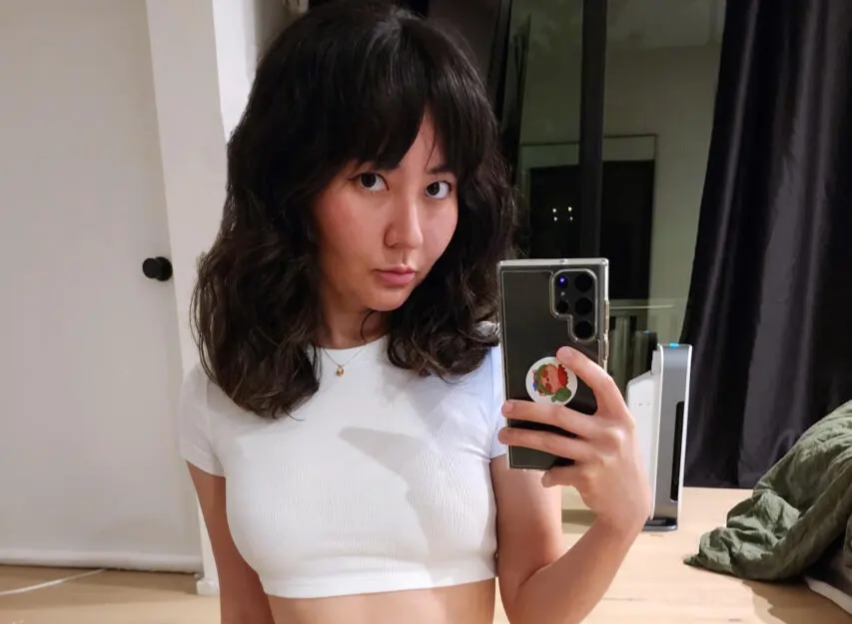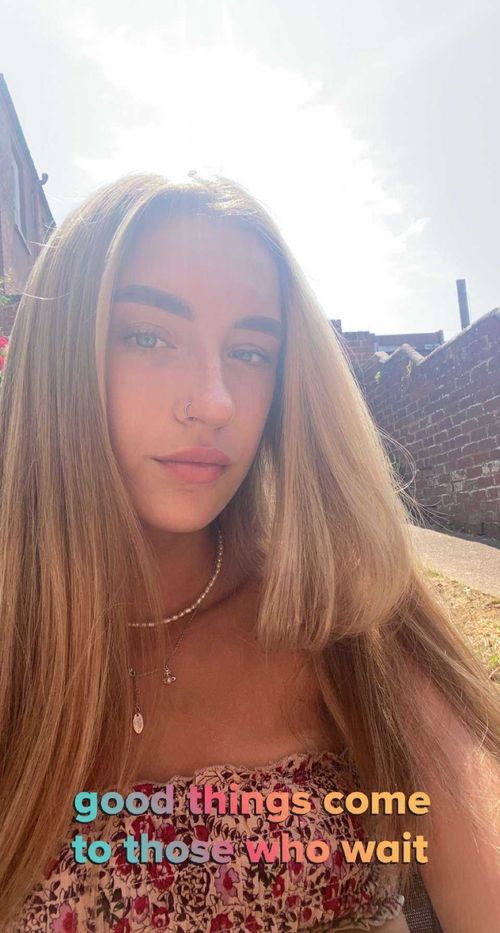Alana Cho & OnlyFans: Controversy, Leaks & What's Next?
In an era dominated by digital platforms and instant gratification, is the pursuit of fame, fortune, and connection truly worth the potential price of privacy and security? The case of Alana Cho, a prominent figure in the creator economy, serves as a chilling reminder that the virtual world can have very real consequences, and that the lines between creator and consumer, public and private, are increasingly blurred.
OnlyFans, the social platform at the heart of this narrative, has undeniably revolutionized the way content creators and their fans interact. It's a space where artists from all walks of life can monetize their work, fostering what is often described as "authentic relationships" with their audience. Yet, as the platform has grown, so too have the risks. Alana Cho, also known by her online handle, Nebraskawut, is a prime example of the complex realities of this digital landscape. A multi-platform presence, she's cultivated a following on TikTok, Instagram, YouTube, and, of course, OnlyFans. Her content ranges from sharing impromptu interviews with strangers to modeling, and even gameplay livestreams on Twitch, reflecting the diverse ways creators engage with their audience in the modern age.
Alana Cho's success on OnlyFans is evident in her statistics: 5.4 million likes and 406 media posts. The platform enables her to offer exclusive adult content to subscribers who pay a monthly fee of $25. While this model provides a direct line of monetization for creators, it also opens doors to significant vulnerabilities, as Alana Cho's experience unfortunately illustrates.
- Emily Compagno Fox News Stars Career Relationship Status 2024
- Emily Compagnos Love Life Peter Riley Divorce New Partner
| Category | Details |
|---|---|
| Full Name | Alana Cho |
| Online Alias | Nebraskawut |
| Date of Birth | (Information Unavailable) |
| Nationality | American |
| Platform Presence | TikTok, Instagram, YouTube, OnlyFans, Twitch |
| OnlyFans Subscription Price | $25 per month |
| Content Type | Modeling, impromptu interviews, gameplay livestreams, exclusive adult content |
| Known For | Building a fanbase through varied content, including interviews, modeling, and gaming |
| Notable Activities | Created a 'thousand-layer Oreo' in a social media post, live streams on Twitch (League of Legends, Fortnite) |
| Controversy | Involved in a leak of exclusive content, leading to legal action and public condemnation |
| Official Website (Reference) | (Unable to provide a direct link due to privacy and content-related restrictions. Information can be found through general search engines or reputable media sources.) |
The story takes a dark turn with the emergence of leaked content. "Alana Cho's onlyfans leak serves as a stark reminder of the challenges faced by digital creators," the situation highlights the precariousness of privacy in the digital age, and the potential for malicious actors to exploit the trust placed in online platforms and the content creators who use them. The specifics of how the content was obtained or disseminated remain under investigation, but the resulting breach is a devastating intrusion into her personal and professional life. It's a situation that raises urgent questions about consent, the responsibility of platforms to protect their users, and the ethics of those who consume and share such content. The leak is not just a violation of privacy; it also poses a significant threat to a creator's livelihood, reputation, and mental well-being.
The ramifications of the leak are multi-faceted. The distribution of explicit material without consent, regardless of the platform it originated from, is a criminal act in many jurisdictions. Such actions can lead to legal penalties for those involved in the unauthorized dissemination of the content. More importantly, the emotional and psychological impact on the victim can be profound. Public shaming, online harassment, and the erosion of personal relationships are all potential consequences. It is against this background that Alana Cho's response becomes crucial.
In response to the leak, Alana Cho took swift and decisive action. "Alana cho has condemned the leak publicly and taken legal action to remove the content from online platforms." This involves working with legal counsel to identify and pursue those responsible for the breach. In addition, she has collaborated with cybersecurity experts and law enforcement to identify the perpetrators. It is a challenging and often protracted process, but it is a necessary one to protect her rights, seek justice, and potentially prevent further distribution of the leaked material. The actions taken by Alana Cho are in line with the best practices for dealing with such situations, demonstrating her commitment to taking the necessary steps to address the harm caused and preserve what she can of her online presence and personal well-being.
- Madeleine Mccann Developments In The Unsolved Case Updates
- Exploring Hd Hub Movie Streaming What You Need To Know
The incident involving Alana Cho underscores the vulnerability of digital creators and the constant threat they face from privacy breaches, and malicious online activities. The incident demands an introspective discussion on the broader landscape of online privacy, content consent, and the moral compass of digital media consumption. Platforms, such as OnlyFans, bear a significant responsibility to protect their users, not only by implementing robust security measures but also by fostering a culture of respect and accountability. The legal and ethical implications should be addressed by creating clear guidelines and transparent policies around content ownership and distribution.
It is crucial to acknowledge the complex nature of content creation, in particular, the nature of content creation on platforms like OnlyFans. The platform offers a space for artists to connect with their fans and monetize their work. It also, however, exposes creators to significant risks, from doxxing and harassment to non-consensual sharing of private content. The case of Alana Cho is an extreme instance of what can go wrong, but it serves as a warning for everyone involved in the online ecosystem to be more careful, more responsible, and more empathetic.
The issue is not only about individual incidents of leaks. It's about the underlying dynamics of the internet, where data is shared at an unprecedented rate, and the lack of true control over one's digital footprint is a constant threat. It is a situation where the lines between the public and private, the creator and the consumer, blur, resulting in an ethical quagmire. The implications of content leaks extend beyond the immediate harm to the creator. They pose questions about privacy, consent, and the responsible and ethical usage of digital platforms and their contents. Consumers of such content are not passive observers; they are active participants in a complex digital ecology.
The ethical questions about the consumption and dissemination of leaked content are complex and multifaceted. The anonymity afforded by the internet can embolden individuals to participate in activities they might not consider in the real world. The circulation of content without consent harms the individual but also undermines the very foundation of trust that is required for a society to function. The case of Alana Cho invites reflection on the individual and the social responsibility we all hold in the digital age.
The case serves as a stark reminder of the ever-present risks in the digital world. The event has sparked important discussions about the roles and responsibilities of content creators, platform providers, and consumers. A more responsible approach to using these platforms, along with technological improvements, is needed to prevent such tragedies from repeating. "Beyond the immediate controversy, it raises important questions about privacy, consent, and the ethical responsibilities of both platforms and consumers."
Article Recommendations



Detail Author:
- Name : Sheila Keeling
- Username : pacocha.samara
- Email : zachary.renner@sauer.com
- Birthdate : 1991-11-17
- Address : 2051 Filomena Divide Apt. 475 Corbintown, FL 51440-3050
- Phone : (810) 756-4942
- Company : Carroll, Heidenreich and Wyman
- Job : Segmental Paver
- Bio : Suscipit reprehenderit soluta veritatis. Consectetur dolorem totam nobis. Quidem et natus doloremque expedita.
Socials
linkedin:
- url : https://linkedin.com/in/ahauck
- username : ahauck
- bio : Voluptas eum accusantium aliquid.
- followers : 6326
- following : 1815
instagram:
- url : https://instagram.com/anika_id
- username : anika_id
- bio : Cum et doloribus debitis voluptatem. Iusto sit omnis praesentium tempora.
- followers : 5894
- following : 1886
facebook:
- url : https://facebook.com/anika_hauck
- username : anika_hauck
- bio : Qui eius in laboriosam repellendus quod.
- followers : 6789
- following : 1828